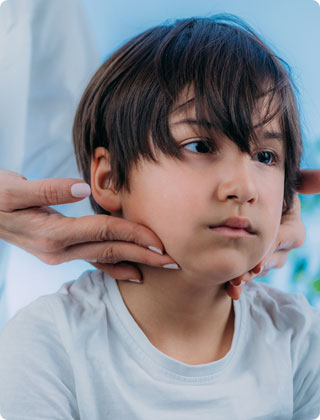MENU


Mold can get into our homes, jobs, and even our bodies without us knowing. Even if we can't always see it, it can have big effects on our health, especially on our immune systems. This article goes into detail about the different types of mold and how they affect the immune system. It also talks about how to spot mold-related symptoms, how mold affects respiratory health, how mold affects the immune system over time, sensitive groups, and effective ways to get rid of mold. Now, before we start, let's answer a very important question: Could mold make you sick or weaken your immune system?
Mold is an unwanted guest in many homes. It grows best in damp places and places with a lot of humidity. Though its ugly look is annoying, what worries us even more is that it might mess up our immune system. To protect our long-term health, we need to know about the different kinds of mold and how they affect our defense systems.
Mold is a very small fungi, and there are different kinds, some of which are more dangerous than others. The well-known "black mold," whose formal name is Stachybotrys chartarum, is often linked to serious health problems, such as immune system problems. Mycotoxins, which are poisonous chemicals made by black mold, can make your body less able to fight off diseases and infections.
For example, Aspergillus and Penicillium are two other common types of mold that can hurt your defense system. If you breathe in mold spores that are in the air, they can cause allergic reactions and damage your lungs, which can weaken your immune system over time.
Mold often grows in damp, hard-to-see places, which can make it hard to find when it's in your home. Knowing the signs of being exposed to mold can help you move quickly. Some common signs of being exposed to mold are:
One of the most important health worries about mold exposure is how it can affect the lungs. It's easy to breathe in mold spores because they are small and light. These germs can cause a number of breathing problems once they get into the lungs, especially in people whose immune systems aren't working well.
Exposure to mold can make health problems like asthma and coughing worse. Mold-related breathing problems can also cause long-term inflammation in the airways, which makes breathing hard and painful. People who already have autoimmune diseases may have a weaker immune system because of this extra stress on their lungs.
Mold exposure can be painful right away and make current conditions worse, but the long-term effects on the immune system are just as scary. According to research, being around mold for a long time can cause the body to be in a constant state of inflammation, which can then make autoimmune diseases more likely to happen.
Autoimmune diseases happen when the body's immune system hits healthy cells by accident. Mold exposure might cause or make these illnesses worse. To avoid long-term health problems, it's important to take mold problems seriously and fix them right away.
Mold's harmful effects are more likely to happen to children, the elderly, and people whose immune systems are too weak. If you are any of these things, being around, mold can be very dangerous.
Mold growth can be more likely if you live in a muggy area or a home that doesn't have enough airflow. Common things that make it easy for mold to grow are leaky roofs, water problems, and damp basements.
Keeping yourself and your family safe from mold should be your first concern. Here are some ways to reduce the damage and stop it from happening:
Mold's possible long-term effects on health should not be taken lightly. There are real worries about how it affects the immune system, the health of your lungs, and the chance of getting autoimmune illnesses. People who are already weak are at even greater risk. To keep yourself and your family safe, watch out for signs of mold, make sure your home stays dry and well-ventilated, and for peace of mind, think about hiring a professional mold testing company like O2 Mold Testing.
Mold can make you sick, but you don't have to let it happen. Do what you can to keep your environment mold-free, and don't wait to get help if you think mold is hiding in your house. Your health is too important to risk.